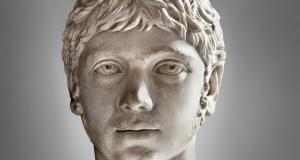Hugo Münsterberg: biography of this German psychologist
Hugo Münsterberg (1863-1916), was a German psychologist and philosopher who laid many of the foundations of psychology applied to different areas, such as law, medicine, education, the clinic, organizations, among others. others.
Next we will see a biography of Hugo Münsterberg, as well as some of his main contributions to psychology.
- Related article: "History of Psychology: authors and main theories"
Hugo Münsterberg: life and work of this important psychologist
Hugo Münsterberg was born on June 1, 1836 in the current city of Gdansk in Poland (what was formerly Danzig, in Prussia). The son of a lumber merchant, and an artist who permanently combined his profession with caring for his children, Münsterberg grew up surrounded by music and poetry. He soon learned to play the cello and to write poems.
In the year 1882, Hugo Münsterberg graduated from high school, and in 1882 he began his university studies at the University of Leipzig, where he he met one of the most renowned psychologists of the time, Wilhelm Wundt
. The latter invited Münsterberg to train in his psychology laboratory, and from this, he began his doctoral studies in that area.In the year 1885, with research on natural adaptation, Hugo Münsterberg obtained the degree of doctor in psychology.
Three years later, he also graduated as a doctor from the University of Heidelberg, and from this began his career as one of the most important researchers and academics for the scientific consolidation of psychology.
- You may be interested in: "Wilhelm Wundt: biography of the father of scientific psychology"
Training in American psychology and German psychology
In 1891, during one of the most prestigious psychology conferences, based in Paris, Hugo Münsterberg met William James, who was already one of the most important philosophers and scientists of the time.
James invited Hugo Münsterberg to collaborate as a researcher at Harvard University, in United States. After accepting the invitation, also influenced by the little acceptance of his research in Germany, Münsterberg spent three years at that institution.
The latter made it possible to consolidate an important link between American psychology and German psychology, which was reflected in the constant exchanges of psychologists in training, especially from the United States to the most important laboratories in different cities of Germany.
Recognition and outstanding work
Hugo Münsterberg he was eventually named president of the American Psychological Association, in the year 1898 and, 12 years later, he was appointed by Harvard University as an exchange professor at the University of Berlin.
Likewise, Münsterberg maintained ambivalent positions regarding the participation of women in universities. While he considered that there was a difference in intellectual capacities between women and men, which prevented them from participating on equal terms in the university; Münsterberg supported different American psychologists in their applications for admission to Harvard University.
This issue was controversial, since it opened the possibility of reducing sexual segregation in university education in the United States.
On the other hand, the professional link that Münsterberg maintained with American psychology and German psychology he found himself problematically reflected in his political views after World War I. On the one hand, Münsterberg maintained feelings of loyalty towards the United States, and on the other, he felt some sympathy for the German actions.
In fact, he developed a project to boost the image of Germany in the United States, an issue that was partly financed by various brewing companies, whom Münsterberg supported while advocating against banning alcohol consumption.
Hugo Münsterberg continued in the United States, working as a professor at Harvard University, where he died suddenly while teaching a class in 1916.
Main contributions to psychology
Hugo Münsterberg carried out studies in different areas of psychology. Mostly he worked in clinical, educational, organizational and forensic psychology. Likewise, he is credited with having developed pioneering studies in psychology and cinema. We will briefly see below his main contributions to psychology.
1. in clinical psychology
True to his training in experimental psychology, as well as drawn to consolidating applied psychology, Münsterberg served as a clinical psychologist in his laboratory.
For him, psychological processes always had a physical correlate located in the brain, with which psychopathology could be observed via neural pathways, and also through behavioral observations.
2. In organizational psychology
Münsterberg studied pioneering topics for applied psychology in organizations, such as fatigue, psychological and social influences of workload, effects of advertising, attentional processes, monotony, and finally applied psychology in economics.
I also develop some theories on how to improve efficiency in organizations, considering emotional, mental and motivational elements of workers.
3. In legal and forensic psychology
One thing Münsterberg focused on in particular was the study of eyewitness testimony, looking at how people see, or think they have seen, certain things.
This inevitably led to study of memory, memories, individual interpretation processes, and the bases of the social influence of this. Münsterberg was one of the first psychologists to study the suggestion processes to which people called to confess in legal settings are exposed.

